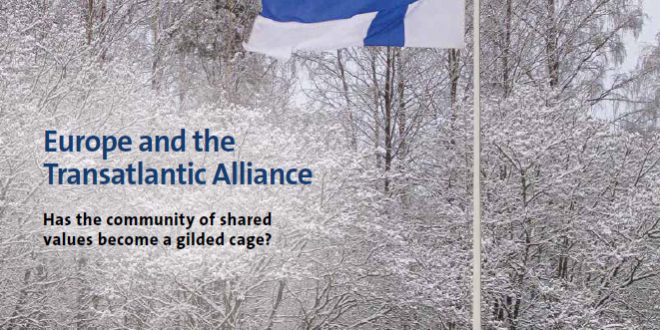The return of war to Europe and its periphery, with the horrendous descent into barbarity inherent in every armed conflict – illustrated by the Russian army’s atrocities in Ukraine, and, more recently, by the indiscriminate killing of civilians and hostage-taking by the Hamas terrorist organisation in Israel – has shocked European societies.
We Europeans are discovering with horror what we have refused to contemplate for too long, that peace hangs in a fragile balance. That it is possible for a neighbouring country of the European Union, a nuclear power and member of the UN Security Council to attack another independent country in pursuit of its imperial ambitions, trampling human rights underfoot and overriding international law with the use of force.
We imagined that a new world order was on the horizon, but we now see that Europe is militarily weak and stuck between the new blocks of the emerging south, the BRICS and the west.
This leads us to the question: will the future world order be once again based on war in which military power reassures and guarantees influence? If so, we should urgently prepare for it. We must first understand that we are trapped in a noble but soothing structure of a European Union of trade, freedoms,
humanity, the rule of law and a prosperous lifestyle. And we must also understand that we are in no position to defend our beloved Europe that we built after the second world war, primarily to make war in Europe impossible.
The Union never wanted to arm itself collectively because it was designed for peace and until a few years ago, military strength was an anachronism. And even today, the Union is not ready for a “European army”, that some are naively calling for, simply because it does not have the institutional structures to accommodate it – the military remains a matter of national sovereignty.
Instead, we have heavily relied on NATO, shielding ourselves under the protection and the nuclear umbrella of the powerful Unites States. However, this comfortable situation has turned out to be a gilded cage in view of America’s declining strategic interest in Europe and the prospect of Donald Trump moving back into the White House.
As a result, the EU is cruelly short of military capabilities. The militarily well-equipped UK has left the EU, France’s armed forces are not prepared for massive, mechanised deployments and Germany’s once extremely modern and strong Bundeswehr has disarmed and is only now, under the shock of the war in Ukraine, massively rearming and taking on the responsibility of guarding Europe’s Eastern flank.
This said, what should we do now? Firstly, the Member States of the European Union must shoulder full responsibility for developing their own military capabilities and strategic potential to ensure that the Union, ideally together with NATO but, if necessary, alone, can defend its own territory. Secondly, we should stop dreaming and even talking of an integrated European army, which has little chance of seeing the light of day, as 27 sovereign states will never pledge their armed forces to the Union in its current political and institutional configuration. Finally, we must understand that the willingness of European societies to make their armed forces capable of fighting when necessary is crucial for our interests and the best guarantee of maintaining peace.
Therefore, rather than dreaming of a European army, we should promote multilateral European armed forces, assembled, if necessary, from existing large multinational formations (like the Eurocorps) on land, in the air and at the sea, with a high degree of readiness, supplemented by national contingents made available by Member States but conducted by the Union.
But above all, we Europeans must finally understand that the time has come for Europe to offer resistance once again and develop the capability to defend itself and its noble human goals.
by Hartmut Bühl, Editor-in-Chief, Paris







